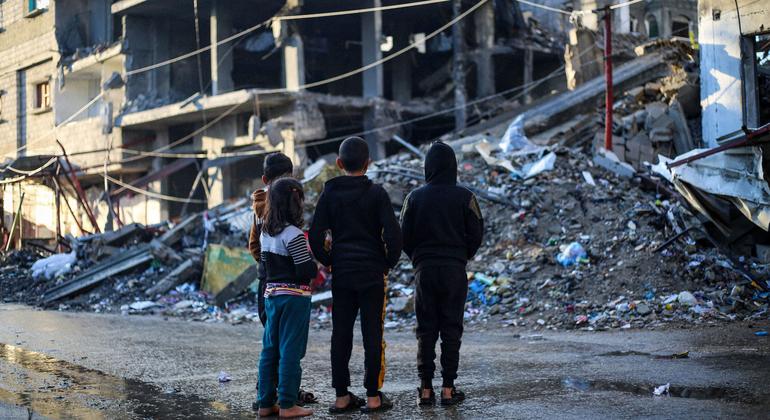The UN agency for Palestinians, UNRWA, has issued a fresh alert about the ongoing humanitarian emergency in Gaza, stating that it will take years for the enclave to be made safe again. More than two million Gazans have been severely affected by daily Israeli bombardment following Hamas-led terror attacks in Israel on 7 October. UNRWA continues to provide lifesaving supplies and services to over 1.5 million displaced people in Gaza, running shelters for more than one million individuals and offering humanitarian relief and healthcare.
Despite the intense Israeli bombardment and ground operations, as well as heavy fighting between Israeli forces and Palestinian armed groups, UNRWA’s lifesaving humanitarian work in Gaza has not stopped. The UN aid coordination office, OCHA, reported ongoing violence across much of the Gaza Strip, particularly in the Hamad area of Khan Younis, resulting in civilian casualties, displacement, and destruction of infrastructure. Mine action partners are conducting assessments of explosive threats and educating Gazans about the dangers, although response efforts have been hindered by restrictions on humanitarian mine action supplies and authorization requirements for specialized personnel.
Australia has recently announced its intention to resume funding for UNRWA, joining other countries in supporting the agency after international donor support diminished due to Israeli allegations that some of UNRWA’s staff had been involved in the 7 October terror attacks in Israel. UNRWA is conducting its own inquiry into the claims, with nine staff members already dismissed. Efforts to establish a new maritime aid route from Cyprus to Gaza are ongoing, with the NGO ship Open Arms carrying 200 tonnes of relief supplies and waiting to deliver them ashore once a jetty is built south of Gaza City.
In northern Gaza, malnutrition rates have doubled, with one in three children now suffering from acute malnutrition, according to UNICEF. The situation in Gaza remains dire, with ongoing violence, displacement, and destruction of civilian infrastructure. UN agencies and humanitarian organizations continue to provide essential services and support to the displaced population, despite challenges such as restrictions on supplies and personnel. The international community’s support, including funding from countries like Australia, is crucial in ensuring that lifesaving aid reaches those in need in Gaza. Efforts to establish new aid routes and partnerships, such as the maritime route from Cyprus, are essential in providing relief to the vulnerable population in the enclave.









